First BPAN disease symposium in France

First BPAN disease symposium in France
The ENS of Lyon, the Association Autour du BPAN gather to organize the first symposium on BPAN disease in Lyon, France. This international symposium will bring together patient organization, scientific and medical experts to share the latest research in the field and to foster networking opportunities on BPAN disease research.
Keynote Speaker
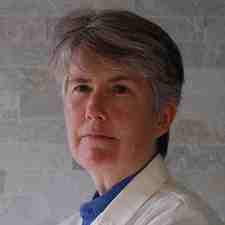
Susan J. Hayflick
Oregon Health & Science University Hospital, USA
Susan Hayflick, MD completed training in medical genetics at Johns Hopkins in Baltimore and joined the faculty at Oregon Health & Science University in 1993. Dr. Hayflick is a professor of Molecular and Medical Genetics, Pediatrics, and Neurology and chair of the Department of Molecular and Medical Genetics. She has led a research program on neurodegeneration with brain iron accumulation disorders (NBIA) for more than 30 years. Her group’s achievements in basic, translational, and clinical science include: discovering 6 disease genes (PANK2, PLA2G6, FA2H, WDR45, MECR, and SLC39A14); delineating their associated disease phenotypes including molecular, biochemical, and cellular pathophysiologies, and clinical natural histories; developing new clinical molecular diagnostics; creating animal models of disease; and developing rational therapeutics for inborn errors of coenzyme A biosynthesis and related disorders. She is clinically active as a medical geneticist in direct patient care and laboratory diagnostics, with ABMGG certification in Clinical Genetics, Biochemical Genetics, and Molecular Genetics.
Invited Speakers
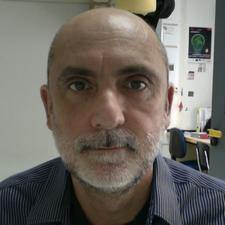
Ricardo Escalante
Instituto de Investigaciones Biomédicas Alberto Sols, Spain
Dr Ricardo Escalante started his scientific career at the University of Valencia, Spain, where he did his undergraduate thesis on the gene expression of transferrin in the mammary gland of the rat and its regulation by estrogens (1990). Later he moved to Madrid (Spain), where he did his PhD Thesis on the study of gene expression during the development of the crustacean Artemia franciscana at the Instituto de Investigaciones Biomédicas (IIBM) (1994). Subsequently, he carried out two postdoctoral stays, first at the University of San Diego (USA) and then at the IIBM (Spain), studying the developmental mechanisms of the social amoeba Dictyostelium discoideum (1995-2006). In 2007 he obtained a permanent position at the IIBM (Spain) and focused his interest on the mechanisms of autophagy, using Dictyostelium and cultured mammalian cells as biomedical models of rare diseases, specifically chorea-acanthocytosis and BPAN.
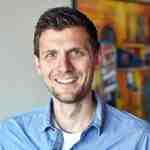
Mario Mauthe
University of Groningen, Netherland
Dr. Mario Mauthe is a senior scientist at the Department of Biomedical Sciences of Cells and Systems at the University Medical Center in Groningen, the Netherlands. His research focus lies in the mechanism and regulation of autophagy under physiological and pathological conditions. He is specifically interested in the relevance of autophagy in neurodegenerative diseases. He obtained his PhD at the University of Tuebingen, Germany on studying the role of WIPI1 and WIPI2 in the regulation of autophagy. Afterwards he joined the laboratory of Prof. Reggiori in the Netherlands. His research now focuses on understanding the contribution of autophagy, in particular the WIPI proteins, in specific pathologies. Because WDR45/WIPI4 belongs to the WIPI protein family and is associated with BPAN, he is now focusing his research on this disease to exploit autophagy as a potential treatment venue for BPAN. Furthermore, he is studying at the molecular level how autophagy, and more specifically a selective type of autophagy called aggrephagy, contributes to the clearance of protein aggregates, a hallmark of numerous neurodegenerative disorders.
Organizing Committee
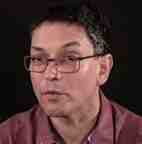
Gaetan Lesca
HCL, Lyon
Member of the scientific council of the association Autour du BPAN, Professor Gaëtan LESCA is a geneticist at the Hospices Civils de Lyon and professor of genetics at the Lyon Est faculty (Université Claude Bernard Lyon 1). It is involved in the genetic diagnosis of neurodevelopment disorders and in particular epilepsies, brain malformations and intellectual disabilities. He also carries out research activities at the CHU and within the NeuroMyoGène Institute. He has contributed to the identification of several genes involved in these diseases and to numerous works on the characterization of genotype-phenotype correlations.
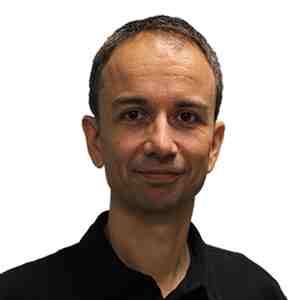
Bertrand Mollereau
LBMC, ENS de Lyon
cPr. Bertrand Mollereau is the head of the Apoptosis and Neurogenetics group at the Laboratory of Molecular Biology of the Cell at Ecole Normale Supérieure de Lyon (ENSL). In 1997, Dr. Mollereau received his Ph.D. on Immunology from the University of Paris XI in the laboratory of Anna Senik. He then conducted post-doctoral research with Dr. Claude Desplan in the Laboratory of Molecular Genetics at Rockefeller and New York Universities. In 2001, Dr. Mollereau was appointed Research Assistant Professor in the Strang Laboratory of Apoptosis and Cancer Biology under Dr. Hermann Steller at the Rockefeller University, USA. There, he obtained NIH grant support and headed a junior research group to study photoreceptor development and apoptosis in Drosophila. Dr. Mollereau joined the faculty as professor at the Ecole Normale Supérieure de Lyon in autumn 2006. In 2008, his group was awarded the ATIP (CNRS) and Fondation pour la Recherche Medical Equipe programmes. His group is interested in understanding the mechanism of cell death and pathophysiology of neurodegenerative diseases using Drosophila and mouse models.
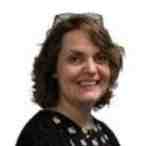
Ludivine Walter
LBMC, ENS de Lyon
Ludivine Walter is an Assistant Professor at Claude Bernard Lyon 1 University. She received her Ph. D in Physiology, Nutrition and Physiopathology from Paris VII University under the mentorship of Pr Eric Fontaine. Immediately following her Ph. D, she completed a post doctoral training in Pr. Gyorgy Hajnoczky's lab at the Jefferson Medical School inm Philadelphia, USA. Subsequently, she started using model organism in Pr Sylvia Lee's lab at Cornell University, Ithaca, USA, where she was awarded a United Mitochondrial Disease Fellowship to work on mitochondria in aging processes in the nematode C. elegans. An ERG Marie Curie fellowship allowed to pursue her research in Hugo Aguilaniu's lab. She joined Bertrand Mollereau's lab in 2016 to study the role of the mitochondria in cell death and physiopathology. She teaches undergraduate and graduate classes in molecular biology and genetics.
Program
Day One, Clinical and scientific program (in English)
Friday, May 13th, 2022
CHECK-IN
Check-in and coffee
9:00am - 10:00am

Autour du BPAN
Introduction
10:00am - 10:15am

Ricardo Escalante (IIB, Madrid, Spain)
Autophagy and ER stress in BPAN: insights from the Dictyostelium model
10:15am - 11:00am
Understanding the fundamentals of Supplemental Security Income (SSI), Social Security Disability Insurance (SSDI), Childhood Disabled Beneficiary Benefits (CDB), Medi-Cal, Medicare, Regional Center, and In Home Supportive Services (IHSS) is the critical first step for the professional to know how to properly plan for persons with disabilities and how to manage their personal and financial care during their lifetimes. This is the foundational program to all other programs. It is a must see for the beginner and an excellent refresher for the experienced professional.

Marion Celle (ENS Lyon, France)
Establishing a Drosophila model of BPAN disease
11:00am - 11:30am
Understanding the fundamentals of Supplemental Security Income (SSI), Social Security Disability Insurance (SSDI), Childhood Disabled Beneficiary Benefits (CDB), Medi-Cal, Medicare, Regional Center, and In Home Supportive Services (IHSS) is the critical first step for the professional to know how to properly plan for persons with disabilities and how to manage their personal and financial care during their lifetimes. This is the foundational program to all other programs. It is a must see for the beginner and an excellent refresher for the experienced professional.
Coffee Break
11:30am - 12:00am

Olivier Vincent (IIB, Madrid, Spain)
Objet de la presentation
11:45am - 12:15am
Understanding the fundamentals of Supplemental Security Income (SSI), Social Security Disability Insurance (SSDI), Childhood Disabled Beneficiary Benefits (CDB), Medi-Cal, Medicare, Regional Center, and In Home Supportive Services (IHSS) is the critical first step for the professional to know how to properly plan for persons with disabilities and how to manage their personal and financial care during their lifetimes. This is the foundational program to all other programs. It is a must see for the beginner and an excellent refresher for the experienced professional.

Mario Mauthe (University of Groningen, Netherland)
Charaterization of the molecular functions of WDR45
12:00am - 12:45am
The WDR45 gene is localized on the X-chromosome and different variants in this gene are causative for the neurodegenerative disorder BPAN (ß-propeller protein associated neurodegeneration). WDR45/WIPI4 is a WD-repeat β-propeller protein that belongs to the WIPI (WD repeat domain, phosphoinositide interacting) family. The precise cellular function of WDR45 is still largely unknown, but deletions or variants in WDR45 can lead to macroautophagy/autophagy defects, malfunctioning mitochondria, endoplasmic reticulum stress and unbalanced iron homeostasis, suggesting that this protein functions in one or more pathways regulating directly or indirectly those processes. Our laboratory is studying the molecular functions of WDR45, particularly in autophagy and mitochondrial homeostasis, using a variety of cellular systems.
Lunch Break
12:45pm – 2:15pm

Autour du BPAN
Introduction
2:15pm - 2:30pm

Arcangela Iuso (Institute of Human Genetics, Germany)
A comprehensive phenotypic characterization of a whole-body Wdr45 knock-out mouse
2:30pm – 3:00pm
Understanding the fundamentals of Supplemental Security Income (SSI), Social Security Disability Insurance (SSDI), Childhood Disabled Beneficiary Benefits (CDB), Medi-Cal, Medicare, Regional Center, and In Home Supportive Services (IHSS) is the critical first step for the professional to know how to properly plan for persons with disabilities and how to manage their personal and financial care during their lifetimes. This is the foundational program to all other programs. It is a must see for the beginner and an excellent refresher for the experienced professional.

Apostolos Papandreou (University College, London, UK)
Small molecules restore autophagy flux on high-content screening in an iPSC-derived neuronal model of Beta-Propeller Protein-Associated Neurodegeneration (BPAN)
3:00pm – 3:30pm
Understanding the fundamentals of Supplemental Security Income (SSI), Social Security Disability Insurance (SSDI), Childhood Disabled Beneficiary Benefits (CDB), Medi-Cal, Medicare, Regional Center, and In Home Supportive Services (IHSS) is the critical first step for the professional to know how to properly plan for persons with disabilities and how to manage their personal and financial care during their lifetimes. This is the foundational program to all other programs. It is a must see for the beginner and an excellent refresher for the experienced professional.
Coffee Break
3:30pm – 4:00pm
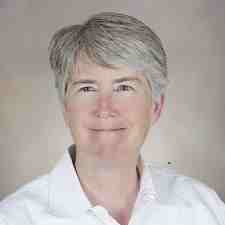
Susan Hayflick (Oregon Health & Science University, USA)
The research landscape for BPAN
4:00pm – 5:00pm
Understanding the fundamentals of Supplemental Security Income (SSI), Social Security Disability Insurance (SSDI), Childhood Disabled Beneficiary Benefits (CDB), Medi-Cal, Medicare, Regional Center, and In Home Supportive Services (IHSS) is the critical first step for the professional to know how to properly plan for persons with disabilities and how to manage their personal and financial care during their lifetimes. This is the foundational program to all other programs. It is a must see for the beginner and an excellent refresher for the experienced professional.
Round table and conclusions
Objet de la presentation
5:00pm – 5:30pm
Understanding the fundamentals of Supplemental Security Income (SSI), Social Security Disability Insurance (SSDI), Childhood Disabled Beneficiary Benefits (CDB), Medi-Cal, Medicare, Regional Center, and In Home Supportive Services (IHSS) is the critical first step for the professional to know how to properly plan for persons with disabilities and how to manage their personal and financial care during their lifetimes. This is the foundational program to all other programs. It is a must see for the beginner and an excellent refresher for the experienced professional.

To Be Announced
Objet de la presentation
5:45pm – 6:15pm
Understanding the fundamentals of Supplemental Security Income (SSI), Social Security Disability Insurance (SSDI), Childhood Disabled Beneficiary Benefits (CDB), Medi-Cal, Medicare, Regional Center, and In Home Supportive Services (IHSS) is the critical first step for the professional to know how to properly plan for persons with disabilities and how to manage their personal and financial care during their lifetimes. This is the foundational program to all other programs. It is a must see for the beginner and an excellent refresher for the experienced professional.
Beer session
General discussion
5:30pm – 6:30pm
Understanding the fundamentals of Supplemental Security Income (SSI), Social Security Disability Insurance (SSDI), Childhood Disabled Beneficiary Benefits (CDB), Medi-Cal, Medicare, Regional Center, and In Home Supportive Services (IHSS) is the critical first step for the professional to know how to properly plan for persons with disabilities and how to manage their personal and financial care during their lifetimes. This is the foundational program to all other programs. It is a must see for the beginner and an excellent refresher for the experienced professional.
End of first day
06:30pm
Gala Dinner Brasserie Georges
08:00pm
30 Cours de Verdun Perrache, 69002 Lyon
Subway line A- Perrache station
Subway line A- Perrache station
Day Two, Families program (in French)g
Saturday, May 14th, 2022
CHECK-IN
Check-in and Coffee
8:30am - 9:15am

Autour du BPAN
Introduction
9:15am - 9:30am
Understanding the fundamentals of Supplemental Security Income (SSI), Social Security Disability Insurance (SSDI), Childhood Disabled Beneficiary Benefits (CDB), Medi-Cal, Medicare, Regional Center, and In Home Supportive Services (IHSS) is the critical first step for the professional to know how to properly plan for persons with disabilities and how to manage their personal and financial care during their lifetimes. This is the foundational program to all other programs. It is a must see for the beginner and an excellent refresher for the experienced professional.

Bertrand Mollereau (ENS Lyon, France)
Recent Scientific Advances in BPAN Disease
9:30am - 10:00am
Understanding the fundamentals of Supplemental Security Income (SSI), Social Security Disability Insurance (SSDI), Childhood Disabled Beneficiary Benefits (CDB), Medi-Cal, Medicare, Regional Center, and In Home Supportive Services (IHSS) is the critical first step for the professional to know how to properly plan for persons with disabilities and how to manage their personal and financial care during their lifetimes. This is the foundational program to all other programs. It is a must see for the beginner and an excellent refresher for the experienced professional.

Gaetan Lesca (HCL, Lyon, France)
BPAN: genetic aspects and translational research
10:00am - 10:30am
Understanding the fundamentals of Supplemental Security Income (SSI), Social Security Disability Insurance (SSDI), Childhood Disabled Beneficiary Benefits (CDB), Medi-Cal, Medicare, Regional Center, and In Home Supportive Services (IHSS) is the critical first step for the professional to know how to properly plan for persons with disabilities and how to manage their personal and financial care during their lifetimes. This is the foundational program to all other programs. It is a must see for the beginner and an excellent refresher for the experienced professional.
Coffee Break
10:30am - 11:00am
Lunch on your ownf
12:30pm – 2:00pm

Stephane Thobois (HCL, Lyon, France)
Deep brain stimulation and dystonia
11:00am – 11:30am
Understanding the fundamentals of Supplemental Security Income (SSI), Social Security Disability Insurance (SSDI), Childhood Disabled Beneficiary Benefits (CDB), Medi-Cal, Medicare, Regional Center, and In Home Supportive Services (IHSS) is the critical first step for the professional to know how to properly plan for persons with disabilities and how to manage their personal and financial care during their lifetimes. This is the foundational program to all other programs. It is a must see for the beginner and an excellent refresher for the experienced professional.

Alexandra Benchoua/Joanna Tournois (I-Stem, Evry, France)
Objet de la presentation
11:30am – 12:00am
Understanding the fundamentals of Supplemental Security Income (SSI), Social Security Disability Insurance (SSDI), Childhood Disabled Beneficiary Benefits (CDB), Medi-Cal, Medicare, Regional Center, and In Home Supportive Services (IHSS) is the critical first step for the professional to know how to properly plan for persons with disabilities and how to manage their personal and financial care during their lifetimes. This is the foundational program to all other programs. It is a must see for the beginner and an excellent refresher for the experienced professional.

JP Lasserre (University of Bordeaux, France)
The baker yeast used as a model to study the pathology of the human rare disease BPAN
11:30am – 12:00am
Understanding the fundamentals of Supplemental Security Income (SSI), Social Security Disability Insurance (SSDI), Childhood Disabled Beneficiary Benefits (CDB), Medi-Cal, Medicare, Regional Center, and In Home Supportive Services (IHSS) is the critical first step for the professional to know how to properly plan for persons with disabilities and how to manage their personal and financial care during their lifetimes. This is the foundational program to all other programs. It is a must see for the beginner and an excellent refresher for the experienced professional.

Pauline Burger (Genida, France)
GenIDA - participatory database to know the natural history and comorbidities of genetic forms of Neurodegenerative Disorders
12:00am – 12:20am
Understanding the fundamentals of Supplemental Security Income (SSI), Social Security Disability Insurance (SSDI), Childhood Disabled Beneficiary Benefits (CDB), Medi-Cal, Medicare, Regional Center, and In Home Supportive Services (IHSS) is the critical first step for the professional to know how to properly plan for persons with disabilities and how to manage their personal and financial care during their lifetimes. This is the foundational program to all other programs. It is a must see for the beginner and an excellent refresher for the experienced professional.
Round table and conclusions
General discussion
12:20am – 12:45am
Understanding the fundamentals of Supplemental Security Income (SSI), Social Security Disability Insurance (SSDI), Childhood Disabled Beneficiary Benefits (CDB), Medi-Cal, Medicare, Regional Center, and In Home Supportive Services (IHSS) is the critical first step for the professional to know how to properly plan for persons with disabilities and how to manage their personal and financial care during their lifetimes. This is the foundational program to all other programs. It is a must see for the beginner and an excellent refresher for the experienced professional.
End of meeting
12:45am
Registration
Registration rate
Registration for this year's symposium costs 45.00€ for the first day, optionnaly 45.00€ for the gala diner (valid only for people registered on the first day) and 12.00€ for the second day (price in euros) for all.
Registration must be done online. Registration extended to May 2th.
Payments can be made online by card (Mastercard/VISA), PayPal, by bank transfers or cheque after etablishing a purchase order using the registration form that will be below.
Registration for this year's symposium costs 45.00€ for the first day, optionnaly 45.00€ for the gala diner (valid only for people registered on the first day) and 12.00€ for the second day (price in euros) for all.
Registration must be done online. Registration extended to May 2th.
Payments can be made online by card (Mastercard/VISA), PayPal, by bank transfers or cheque after etablishing a purchase order using the registration form that will be below.
Step One: Verify your identity. To access the registration form, you must enter a valid email. A verification code will be sent to this email.
Step Two: Complete the form below to order.
Step Tree: Choose your payment method.
Direct payment: By paypal or Credit Cards
Place Order: Your can download this purchase order - payment can be made by bank transfer or bank check before April 29th
Generate the purchase Order
Registration is closed.
Information
Please fill the form below for more informations on the program and registration.
Extended abstract deadline submission April 11th
Extended abstract deadline submission April 11th
Access map
The Ecole Normale Supérieure de Lyon is located in the Gerland district in the south of Lyon, near the Pasteur Bridge, on the left bank of the Rhône. The entrance to the site is through the reception allée d'Italie.



From Lyon Saint-Exupéry airport, take the Rhône Express shuttle from the airport to Part-Dieu train station.



From Lyon Part-Dieu train station, take the exit on the boulevard Vivier Merle side. Take metro line B, direction Stade de Gerland. Get off at Debourg.



From Lyon Perrache train station, take tram T1 direction Debourg, get off at ENS Lyon station.

















